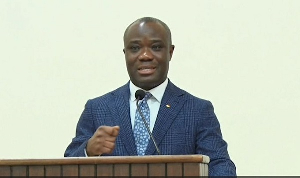The Ghanaian cedi has continued its downward trend against major foreign currencies, setting a new record low on Monday of 3.14 to the dollar.
The local currency, which is down 29.4 percent against the dollar since January this year, thus becomes the worst performing currency in Africa, Financial Times reports.
The Financial Times also said even though the fiscal problem in Ghana was severe than in Zambia, that country recently appealed to the International Monetary Fund (IMF) for financial help and ever since, her local currency – the kwacha – has witnessed some sharp appreciation against the dollar.
At a point in time this year, it said the kwacha was down 27.5 per cent against the US dollar.
But after rallying strongly over the last week as rumours of the IMF plan surfaced, it has cut its losses to 16 per cent.
Noting further that Lusaka and Accra faced similar problems in the form of runaway fiscal deficits that were caused by electorally-driven increases in public sector salaries and a swelling current account deficit that was pressuring the exchange rate, the report said Zambia’s request should convince Ghana to seek help from IMF too.
The Single Spine Salary Structure (SSSS), which started in 2010, has increased government’s wage bill consuming almost 70 percent of the tax revenue.
It quoted Razia Khan, Africa economist at Standard Chartered as saying: “The IMF programme will give investors that much more comfort that fiscal consolidation will happen.”
Meanwhile, there are doubts about fiscal consolidation in Ghana.
But the government still insists it would avoid the IMF option and concentrate on home-grown solution.
Analysts however believe that Government’s decision to cut the deficit to 8.5 per cent of GDP this year and 7.5 percent in 2015, down from 10.8 percent in 2013, without the supervision and financial support of the IMF, looks unworkable.
In its latest review of Ghana’s economy, the IMF last month warned that under current policies, the fiscal deficit would only narrow marginally to 10.2 per cent, this year and 9.3 per cent in 2015 far below the official target.
Business News of Friday, 13 June 2014
Source: Daily Guide

















